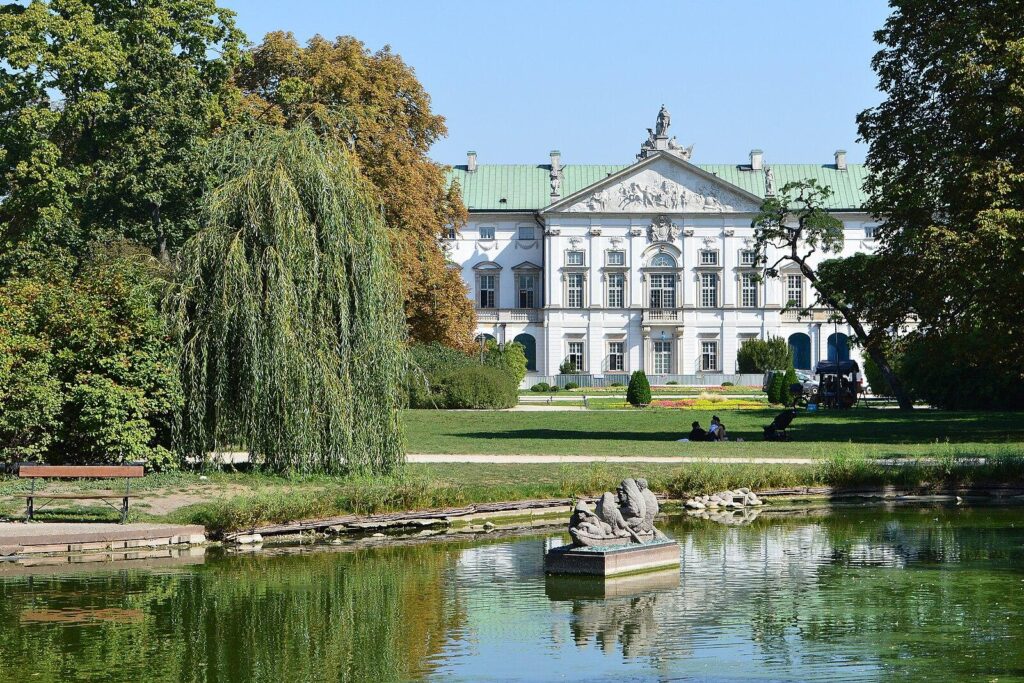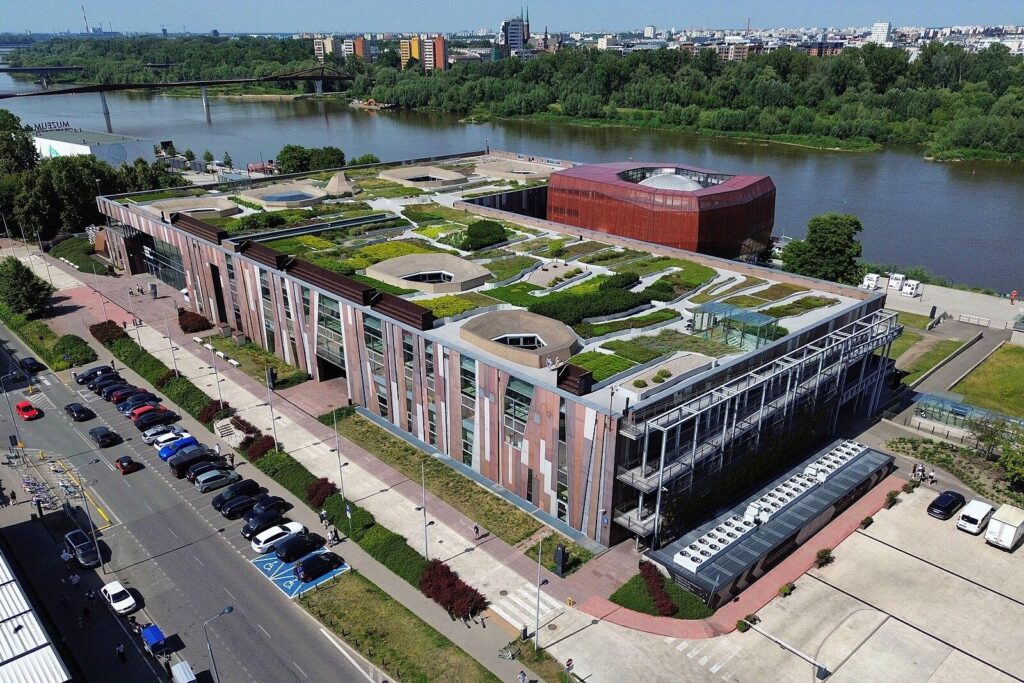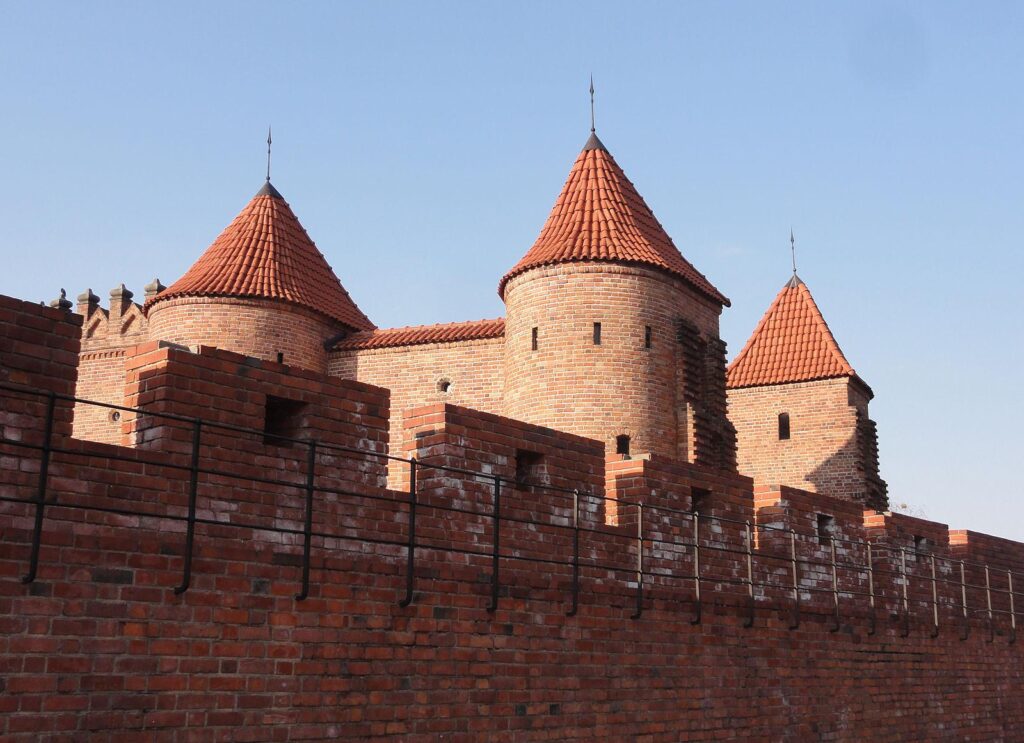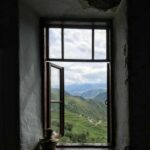Warsaw Poland is a city full of contrasts. From its deep history to its lively streets, Warsaw offers something for every visitor. Walking through the city, you can feel the pulse of a place that has rebuilt itself from almost nothing. Its famous landmarks stand side by side with modern cafes and green parks, making it a unique travel spot. Whether you are curious about culture, food, or history, Warsaw’s charm is ready to surprise you.
Table of Contents

Iconic Warsaw Landmarks to Visit
The Old Town (Stare Miasto) is often the first stop for those arriving in Warsaw. Despite being almost completely destroyed during World War II, it was carefully rebuilt to look like it did centuries ago. Colorful townhouses line the cobblestone streets, and the Royal Castle at the center tells stories of Poland’s royal past. Don’t miss the Sigismund’s Column, a statue that honors King Sigismund III and offers a perfect photo spot.

Nearby is the Market Square (Rynek Starego Miasta), buzzing with cafes and street artists. Try sitting outside with a cup of coffee and watch the world go by, just like locals do.

Another striking landmark is the Palace of Culture and Science. This massive, Soviet-era skyscraper divides opinion-some call it a symbol of oppression, others see it as a symbol of resilience. From its observation deck high above the city, you get breathtaking views stretching all the way to the Vistula River. Fun fact: locals jokingly call it “Pekin” (Pe-kin), as it resembles architecture from Beijing.

Hidden Corners and Local Favorites
While the Old Town is wonderful, stepping into the Praga district offers a different vibe. It feels raw and artistic, with street art covering old factory walls and quirky cafes serving Polish craft beer. Here you might stumble upon a small gallery or a market selling homemade pierogi (Polish dumplings).

For a quiet moment, visit the Łazienki Park, home to peacocks and lakes. The park’s centerpiece is the Palace on the Isle, which seems like something out of a fairy tale. On weekend afternoons, you can catch free piano concerts in the park’s amphitheater, a delightful surprise for anyone who loves music and nature combined.

Polish Flavors and Where to Taste Them
Warsaw’s food scene is a fine mix of tradition and modern twists. You can find classic Polish dishes almost everywhere, but the best start is always with pierogi. These small dumplings filled with meat, cheese, or mushrooms taste best when freshly made at a local bar mleczny (milk bar). These milk bars are casual, inexpensive places that serve homemade meals, a tradition that dates back to the communist era.

Head to the Śródmieście district for a wide choice of restaurants. Try “żurek,” a sour rye soup often served with sausage and egg, for a true taste of Poland. When it comes to sweets, “pączki” (Polish donuts) are a must. Grab one on the way to the Royal Castle for a perfect sweet treat.

Getting Around Warsaw Like a Local
The city’s public transport system is efficient and user-friendly. Buses, trams, and the metro connect all major parts of the city. From the Chopin Airport to the city center, a fast train takes about 20 minutes, making it easy to jump into the action as soon as you land. Buying a single ticket works for all types of public transport, and validation is important-don’t forget to punch your ticket before you sit down.

Walking is also a great way to feel the city’s rhythm, especially in the Old Town and along the Vistula River promenade. Many locals prefer trams for their scenic routes, so don’t hesitate to hop on one for a relaxed city tour.

Living Like a Local: Culture and Etiquette
Poles are known for their hospitality but also appreciate polite behavior. When meeting someone new, a firm handshake and eye contact show respect. It’s common to greet with a simple “Dzień dobry” (jen DOH-bri), meaning “good day.” Using this phrase when entering shops or restaurants is seen as friendly and respectful.
Though many younger people speak English, trying basic Polish phrases is always appreciated. “Proszę” (PROH-sheh) means please, and “Dziękuję” (jen-KOO-yeh) means thank you. Saying these shows kindness and effort, smoothing many interactions.
Remember, speaking softly in public places is courteous. Loud conversations or phone calls on public transport are considered rude. Also, when invited to a Polish home, removing your shoes at the door is a polite gesture.
Where to Stay for a Comfortable Visit
Choosing where to stay depends on what you want from your Warsaw visit. The Old Town is perfect if you want to be in the middle of historic sights and lively streets. If you prefer modern comfort and easy transport links, Śródmieście (city center) offers many apartments and guesthouses.
For those who wish to feel the local pulse, the Praga district provides boutique stays and a creative atmosphere. It gives a glimpse of Warsaw’s real life away from tourist hotspots. Wherever you stay, Warsaw’s public transport will easily connect you to the main places to visit.
Warsaw Stories That Surprise Visitors
Not many know, but beneath Warsaw’s streets lie thousands of bunkers and tunnels built during the war. Some are now museums or open for tours, telling the tough stories of Warsaw’s past. Another surprising fact: after World War II, artists and historians took great care to rebuild the Old Town using old paintings and photographs as references. This effort helped Poland keep its identity when much was lost.
Also, look out for Warsaw’s “Syrenka” (mermaid) statues. This mythical mermaid is one of the city’s emblems, said to protect Warsaw and its people. The most famous statue stands near the Old Town and is a popular spot for photos and local tales.
Poland’s capital is a city that mixes the past and present in ways that delight many visitors. Its landmarks, food, and people leave warm memories, inviting you to return time and again. So, pack your bags and say to a local, “Na zdrowie!” (nah zdroh-VYE), which means cheers, as you toast to a lively and unforgettable stay in Warsaw.

Eastern Europe travel specialist uncovering hidden gems from the Baltics to the Balkans.
- Castle Square (22346p) by Rhododendrites on Wikimedia Commons – cc by-sa 4.0
- Royal Castle, Warsaw, western facade, 2024, 01 by Chris Olszewski on Wikimedia Commons – cc by-sa 4.0
- 2018-07-07 Ogród Królewski w warszawskich Łazienkach 06 by Maksym Kozlenko on Wikimedia Commons – cc by-sa 4.0
- Palace of Culture and Science, Warsaw, Poland August 2019, 01 by Kgbo on Wikimedia Commons – cc by-sa 4.0
- 4 Warszawa 17 by Marek and Ewa Wojciechowscy on Wikimedia Commons – cc by-sa 3.0
- Czyste, Warsaw, Poland – panoramio (12) by Roman Eugeniusz on Wikimedia Commons – cc by-sa 3.0
- Warsaw 2023 218 Krasinski Palace Pond by Scotch Mist on Wikimedia Commons – cc by-sa 4.0
- Warszawa Centrum Nauki Kopernik (dron) by Kapitel on Wikimedia Commons – cc by-sa 4.0
- 016 – Barbican, Poland, Wall, Warsaw – Guillaume Speurt (8121504135) by Guillaume Speurt from Vilnius, Lithuania on Wikimedia Commons – cc by-sa 2.0
- Muzeum Narodowe w Warszawie – panoramio – Mister No by Mister No on Wikimedia Commons – cc by 3.0
- POLIN 01 by Simon Burchell on Wikimedia Commons – cc by-sa 4.0
